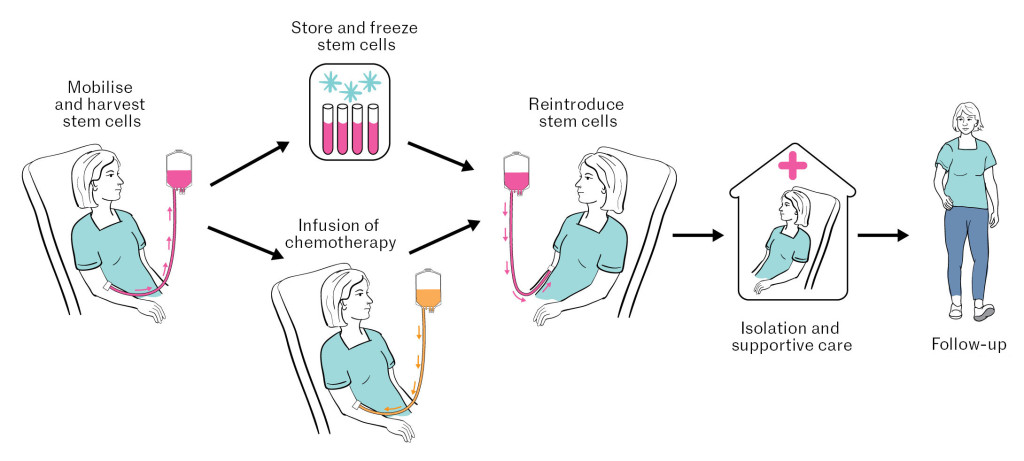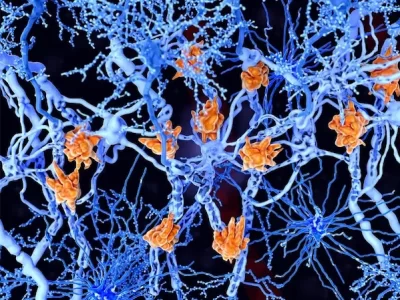The Greatest Guide To Regenerative Medicine For Multiple Sclerosis
Wiki Article
Some Known Factual Statements About Regenerative Medicine For Multiple Sclerosis
Table of ContentsOur Regenerative Medicine For Multiple Sclerosis StatementsOur Regenerative Medicine For Multiple Sclerosis PDFsMore About Regenerative Medicine For Multiple SclerosisRegenerative Medicine For Multiple Sclerosis Fundamentals ExplainedThe Basic Principles Of Regenerative Medicine For Multiple Sclerosis Excitement About Regenerative Medicine For Multiple Sclerosis8 Easy Facts About Regenerative Medicine For Multiple Sclerosis Shown
The mesenchymal stem cells transplanted throughout stem cell therapy can separate and mature to create new cells that can fill in the damaged cells of the nervous tissue. This might recover neurological functions in patients with this problem. These benefits of stem cell treatment are more supported by the ability of MSCs to promote recovery.Patients with several sclerosis are usually treated with mesenchymal stem cells. These are multipotent stem cells that have the capacity to separate and grow to develop a variety of cell enters the body. As soon as hair transplanted, these stem cells can create to form healthy nerve cells hence supporting the regrowth of the damaged tissues of the worried system.
When hair transplanted, the stem cells move to areas of inflammation or damages within the main nerve system (CNS). They are normally attracted to the sites of injury where the immune system is striking the myelin sheath, the protective covering of nerve fibers. The stem cells work by promoting the repair service and regeneration of harmed myelin, possibly recovering feature to impacted afferent neuron.
How Regenerative Medicine For Multiple Sclerosis can Save You Time, Stress, and Money.
Stem Cell Study on MS The National Several Sclerosis Culture, along with other organizations, is actively moneying and sustaining research into mesenchymal stem cell treatment for multiple sclerosis to explore their prospective and enhance therapy methods. The goal is to develop much safer and extra effective methods to make use of stem cells in dealing with MS.
All About Regenerative Medicine For Multiple Sclerosis
Here are below from evaluations of clients Swiss Medica clinic. The client traveled from Romania looking for treatment for MS after listening to positive feedback about stem cell treatment for the condition.Obtain a free online examination to discover exactly how stem cells will certainly function for your case, and what are the period and cost of the therapy. Uccelli, A., Laroni, A., Brundin, L., Clanet, M., Fernandez, O., Nabavi, S. M. Regenerative Medicine for Multiple Sclerosis., Muraro, P. A., Oliveri, R. S., Radue, E. W., Sellner, J., Soelberg Sorensen, P., Sormani, M. P., Wuerfel, J. T., Battaglia, M
Stem cells are cells in the body that can mature into grow right into that serve an offer functionParticular There are 2 major kinds of stem cells: embryonic stem cells and adult stem cells.
are discovered in some grown-up cells and body organs consisting of the bone marrow, skin, blood, and brain. Grown-up stem cells are not as flexible as embryonic stem cells and are consequently much more restricted in regards to the sorts of cells they grow right into. The unique residential properties of stem cells provide guarantee for new treatments that can slow/halt MS illness activity and repair work tissue damage in the central nerve system.
Things about Regenerative Medicine For Multiple Sclerosis

The treatment involves accumulating stem cells from an individual's own (autologous) bone marrow. The person is then treated with chemotherapy to deplete the immune system and stem cells are reestablished into the body where they grow right into new, healthy and balanced immune cells - Regenerative Medicine for Multiple Sclerosis. Stem cells can be injected into the body in different means

In 2000, the MS Society of Canada and MS Scientific Research Structure funded a clinical test involving HSC transplants, led by Drs. Mark Freedman and Harry Atkins from the Ottawa Hospital Research Study Institute/University of Ottawa. The aHSC therapy readily available in Canada is a treatment that utilizes high-dose radiation treatment, likewise called conditioning.

Regenerative Medicine For Multiple Sclerosis Fundamentals Explained
Neural stem cells (NSC) are found in the brain and can develop into various kinds of mind cells consisting of nerve cells, oligodendrocytes, and astrocytes. NSCs may serve to repair or secure the brain and modulate the body immune system. Early clinical tests in non-human primates showed that treatment with NSCs benefitted the development of MS-like condition in animal models.The arise from these safety studies declare for future stem cell and regenerative medicine therapies in MS. Future medical tests (phase 2 and 3) with bigger numbers of participants and controls are necessary to evaluate the efficacy of this therapy for MS. As shown by the examples above, there is a large array of study happening that will provide added responses about visit site making use of stem cells to treat MS.
Stem cell treatment is taken into consideration secure, but, like any kind of medical procedure, it lugs some dangers, such as momentary swelling or discomfort at the injection website. Nevertheless, serious negative effects are unusual when performed by qualified specialists.
Rumored Buzz on Regenerative Medicine For Multiple Sclerosis
Several sclerosis (MS) is a chronic illness of the main nerves that impacts the mind and back cable. It is characterized by the destruction of myelin, a compound that covers nerve fibers, leading to disturbances in interaction in between the mind et cetera of the body. Signs can vary commonly and include muscular tissue weakness, vision problems, imbalance, and fatigue.Several sclerosis is characterized by the immune system mistakenly attacking the protective sheath (myelin) that covers nerve fibers, causing interaction concerns between the brain et cetera of the body. The condition can bring about the wear and tear or long-term damage of nerves. Symptoms vary commonly among patients and can consist of exhaustion, mobility concerns, discomfort, and cognitive modifications.
Report this wiki page